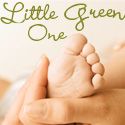In her book, "Battle Hymn of the Tiger Mother", recently excerpted in The Wall Street Journal, Yale Professor Amy Chua boasts about all the things her daughters were not allowed to do, ever. The list --by no means exhaustive, I’m sure-- includes having a sleepover or play date, being in a school play, watching TV or playing computer games, choosing their own extracurricular activities, getting any grade less than an A, not being the top student in every subject (except, mercifully, gym and drama), playing any instrument besides the piano or violin.
Chua claims her strict and regimented 'Chinese-style' parenting is more successful than that of most (permissive) Westerners, who stress individual happiness over achievement. So, who’s right? Who’s wrong? While I don’t doubt that Chua’s daughters are hugely talented, highly precocious youngsters, I feel sorry for the means by which they became so. I find Chua’s methods questionable at best. She claims to love her children so much that she doesn't expect less than perfection from them. But I wonder whether she hasn't raised the bar impossibly high.
Rote repetition may well be underrated here in America, as Chua claims. Perhaps as parents we let our children off the hook too easily at times. Perhaps we allow them give up without first putting up a good fight. After all, what’s most worthwhile in life rarely comes on a silver platter. It’s a question of balance, however, and this is where Chua gets it horribly wrong. Practice and effort are right to be applauded, but not at all costs. There are circumstances in which failure is, and should be, an option, and one for which children are not rebuked or humiliated. (At one point Chua fondly recalls how her own father once accused her of 'disgracing' him when she came second place in a contest.)
When loved for her abilities rather than for her intrinsic worth, a child’s emotional and mental welfare is compromised. A child should not have to earn a parent’s pride through achievement alone. Chua claims she drives her children to succeed because she loves them too much to watch them fail. But isn't failure a crucial lesson in and of itself? How much is too much to expect from our children? In Chua's vision, parental love isn’t a given; it has to be earned through blood, sweat, and tears – not merely through valiant effort but through overachievement. In my understanding, parenting shouldn't be based on a points system. A child should be loved, first and foremost, for himself, not for what he can or can’t do.
If a Chinese child came home with a B grade (not a likely scenario, according to Chua), therein would follow ‘a screaming, hair-tearing explosion’, followed by the most intensive, grueling regime until a 'B' became 'A'. It goes without saying that this failure-is-not-an-option model creates unbearable pressure on children, and though the results may be close to perfection, innocence and fun are sacrificed just so the parent gets to play the brag card. The children learn discipline, sure, but they also learn less favorable lessons, too.
And what happens down the line when the classically trained pianist or figure skating champion burns out at age 15, or ends up 'dissing' the prodigious talent his entire young life has been based upon? What happens when the student grows to resent his parents and rebels against their influence? Or, in extreme cases, ultimately cracks and commits suicide?
I may never have made it through high school calculus, or even chemistry for that matter. And I’ve never so much as picked up a guitar, let alone a violin. By Chua's standards, I’m a worthless loser. But more importantly, I’m a happy and deeply loved loser. And that is far more precious to me than being able to play a sonata in b minor or to work out the value of x.
Saturday, January 15, 2011
Subscribe to:
Post Comments (Atom)















Grrrr, when I read this women's article I like many I'm sure, kept waiting for the, 'Gotcha' and when none came I could not believe that a highly educated and I would have to assume worldly woman (she's a Yale professor for gawd's sakes!) would be allowed to publish such irresponsible generalizations about the parenting styles of an entire culture! I think she would be better suited to publish about how to feed into social stereotypes.
ReplyDeleteThanks, Momb. Too true. The cynic in me wonders whether she isn't (deliberately) stirring up controversy in order to sell her book... But then, I am waaaay too cynical! Thanks for reading xx
ReplyDeleteI think her book might have been misrepresented, and that the excerpt was not contextualised.
ReplyDeletehttp://www2.macleans.ca/author/annekingston/
Lia, having read the Maclean's interview this week, I agree that TWSJ was a bit harsh, but only a bit. Chua claims her guiding parenting principle is love, but the examples she herself gives speak for themselves, context notwithstanding. She's creating quite a stir with this piece, both here and in China.
ReplyDelete